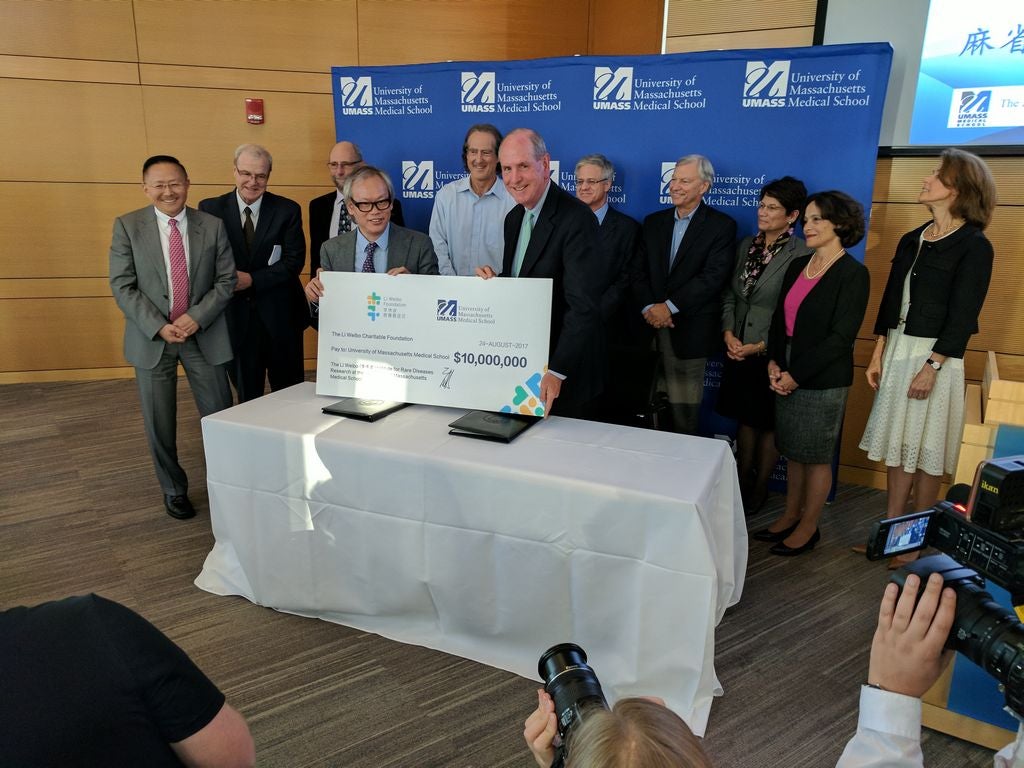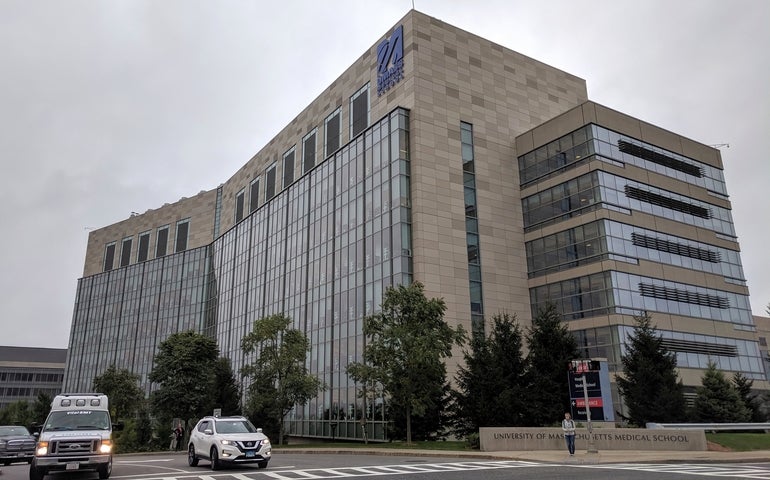In its just-completed seven-year fundraising initiative, UMass Medical School received support from both local donors and international ones, and those giving to scholarships and those looking to benefit research.
That generosity led to the school surpassing its $250-million fundraising goal ahead of time, one of several Worcester colleges to beat their own expectations for financial support in recent or ongoing campaigns.
The results of the Pathways of Promise initiate show generosity in the Worcester area as well as the ability of the UMass name to resonate nationally and abroad among those looking to support research into causes important to donors, UMass Medical School Chancellor Michael Collins said.
“We try to align passion of donors with the needs of the institution,” Collins said in an interview.
The fundraising campaign has led to the creation of Li Weibo Institute for Rare Diseases Research, named for a Chinese businessman who gave $10 million in 2017 despite no previous connection to the school.
The medical school received $7.5 million from the Paul G. Allen Family Foundation, named after the late Microsoft co-founder, to support Ebola outreach. That connection was forged through UMass Medical School’s work to fight Ebola in Liberia, a cause that the Allen Foundation supported through major fundraising.

The campaign brought in the largest gift from an alumnus, with $2 million donated in 2017 by Diane Riccio, a 2003 graduate, and her husband, Dan Riccio. The couple’s contribution is benefiting ALS and neuroscience research.
In other giving, $6 million from a coalition of donors is allowing for a new clinical and research program on Duchenne muscular dystrophy, and $4.7 million was given for student financial aid and scholarships.
UMass Medical School is one of several Worcester colleges to launch ambitious fundraising campaigns in recent years.
The College of the Holy Cross is nearing a goal of $400 million in a campaign, and Worcester Polytechnic Institute raised $248 million to beat a $200-million campaign it launched in 2012. Clark University launched a $125-million fundraising campaign in 2017, and hit that target almost two years earlier than anticipated.
The medical school’s campaign is part of a greater emphasis on fundraising, Collins said. Previous medical school leaders built the school — which is now nearing its 50-year mark — he said, while he’s been working to support what’s now in place.
Fundraising, Collins said, is most successful through building relationships with donors — a process that can take time. It has helped since 2007, the school has had stability with Collins as chancellor and Terence Flotte as dean.
The school announced Sept. 30 it would start work later this year on a $70-million to $75-million building on Belmont Street to host a new Veterans Affairs clinic and other space for the school to grow when it opens in 2021.
The school’s endowment has ballooned from $39 million in 2004 to $222 million in 2018, and the school has brought in nearly $1.5 billion in research funding over the past decade from the National Institutes of Health. The number of endowed faculty chairs has grown to 50, but Collins said the goal is to get to a more ideal level of 75.
“We’re always in fundraising mode,” he said.

